Everything You Need to Know About UPVC and PVC Pipes: Differences, Durability, and Best Uses
Can UPVC Pipe Be Used Instead of PVC Pipe in Borewell?
What is the Difference Between UPVC and PVC Pipes?
UPVC (Unplasticized Polyvinyl Chloride) and PVC (Polyvinyl Chloride) are both types of plastic pipes, but their chemical compositions and properties differ significantly. UPVC pipes are rigid and stronger because they lack the plasticizers found in regular PVC pipes, which makes them more resistant to chemicals and environmental stress. On the other hand, PVC pipes are more flexible and easier to handle during installation but might not offer the same level of durability in harsh conditions.
Can UPVC Pipe Handle the Conditions of Borewell Installations?
Yes, UPVC pipes are highly suited for borewell applications. Their strength and resistance to chemical corrosion make them ideal for deep well installations where high pressure and external environmental factors like soil acidity and water contaminants are common. UPVC pipes can handle the depth and pressure conditions of borewell installations without breaking down over time.
Which Pipe is Best for a Borewell?
Factors to Consider When Choosing a Borewell Pipe
When selecting a borewell pipe, factors like the depth of the well, water pressure, and environmental conditions must be considered. Borewell pipes need to be durable, resistant to corrosion, and able to withstand high pressure. Additionally, the pipe material should not be reactive with chemicals or groundwater.
Comparing Pipe Options for Borewells
While both PVC and UPVC can be used in borewell installations, UPVC is typically preferred for deeper and more industrial applications due to its superior strength and resistance to external stresses. PVC, although cheaper, may not last as long in harsh borewell environments.
Which is Better, uPVC or PVC Pipe?
Advantages of UPVC Over PVC Pipes
UPVC pipes offer superior chemical resistance, which makes them ideal for applications like sewage and industrial waste systems. They are also more rigid and can handle higher pressure, making them the preferred choice for applications requiring durability.
Cost Comparison: UPVC vs. PVC
UPVC pipes tend to be more expensive than PVC due to their enhanced durability and resistance properties. However, the long-term benefits of UPVC, such as reduced maintenance costs and longer lifespan, make it a more cost-effective option in the long run.
Can uPVC Pipes Be Used for Drinking Water?
Are uPVC Pipes Safe for Drinking Water Systems?
Yes, uPVC pipes are generally safe for drinking water as long as they meet the required safety and health standards. They are non-toxic and resistant to bacterial growth, making them an excellent choice for potable water systems.
Alternatives to uPVC for Drinking Water
While uPVC is safe for drinking water, materials like CPVC (Chlorinated Polyvinyl Chloride) and PEX (Cross-linked Polyethylene) are also commonly used for potable water systems due to their added flexibility and thermal resistance.
What Kind of PVC Pipe for Drinking Water?
Types of PVC Pipes Suitable for Drinking Water
Not all PVC pipes are created equal. When selecting pipes for drinking water, it’s crucial to choose Schedule 40 PVC pipes that are designed and certified for potable water. Schedule 40 PVC pipes are suitable for cold water applications and are most commonly used in residential plumbing systems.
For hot water applications, CPVC pipes are preferred as they are designed to withstand higher temperatures. Schedule 40 PVC is typically used for outdoor irrigation systems, sewer lines, and non-potable water applications.
Choosing the Right Grade of PVC Pipe for Water Supply
To avoid health risks, always opt for NSF-certified PVC pipes that are designed for potable water systems. This ensures that the pipes are made from materials that won’t contaminate the water supply.
What Are the Disadvantages of uPVC Pipe?
Limitations of uPVC Pipes
One of the major drawbacks of uPVC pipes is their brittleness at low temperatures. They can crack or break under pressure or extreme cold, which makes them unsuitable for certain climates or applications where pipes are exposed to harsh environmental conditions.
Common Issues and Concerns with uPVC Pipes
uPVC pipes can degrade over time when exposed to UV radiation, which causes them to become brittle. This issue is easily mitigated by proper installation and using UV-protective coatings when the pipes are exposed to sunlight.
Is uPVC More Expensive Than PVC?
Price Comparison Between uPVC and PVC Pipes
UPVC pipes generally cost more than PVC due to their superior strength and durability. However, the initial investment is often worth it when considering the pipe’s longer lifespan and reduced need for replacement or maintenance.
Health Considerations and Certifications for PVC in Water Systems
Always check for the NSF 61 certification when selecting PVC pipes for drinking water. This ensures that the pipes do not contain harmful chemicals that could leach into the water.
What Type of Pipe is Used for Main Water Lines in India?
Pipes Used for Main Water Supply in India
For main water lines in India, DI (Ductile Iron) pipes, PVC pipes, and UPVC pipes are commonly used. DI pipes are known for their strength, while PVC pipes are favored for their affordability and resistance to corrosion.
Factors That Influence the Cost of uPVC and PVC Pipes
The cost of uPVC and PVC pipes can vary based on factors such as material grade, manufacturing process, and regional availability. Additionally, the cost of installation, including labor, will also impact the overall expense.
Manufacturing Process of CPVC Piping Systems
Conclusion
In conclusion, PVC pipes are generally safe for drinking water when used correctly, installed properly, and certified for potable water systems. While PVC offers significant advantages in terms of cost, durability, and ease of installation, it’s crucial to ensure that you use NSF-certified pipes that meet the safety standards for potable water. When choosing materials for your plumbing system, always consider the long-term safety, environmental factors, and regulatory requirements to ensure that the water you drink remains clean and safe.
Frequently asked questions
Here are answers to some frequently asked questions about Fitwell's plumbing services.
UPVC pipes are typically the best choice for borewells due to their durability and ability to withstand high pressure.
UPVC pipes are typically the best choice for borewells due to their durability and ability to withstand high pressure.
Yes, UPVC pipes are safe for drinking water systems as long as they meet health and safety standards.
UPVC pipes can become brittle in extreme cold and are susceptible to UV degradation if not properly protected.
UPVC pipes can last between 50 to 100 years, depending on the installation and maintenance.
Stay on the forefront of industry trends by checking out our latest content
Stay ahead with our latest content, designed to keep you informed on the newest industry trends and insights. Discover valuable updates that help you lead in your field.

FRP Manhole Covers vs. Traditional Materials: A Data-Driven Comparison
FRP Manhole Covers vs. Traditional Materials: A Data-Driven Comparison Introduction As cities expand and infrastructure needs evolve, the demand for durable, eco-friendly, and cost-effective solutions has increased. One area where

PVC Service Saddles: The Hidden Champion of Network Maintenance
PVC Service Saddles: The Hidden Champion of Network Maintenance Introduction An efficient plumbing system is crucial for the smooth distribution of water, gas, or other fluids in residential, commercial, and

MDPE Fittings: Everything You Need to Know
MDPE vs. Traditional Piping: 32% Maintenance Cost Savings Introduction MDPE (Medium-Density Polyethylene) fittings have become an integral part of modern plumbing, irrigation, and gas distribution systems. Known for their flexibility,
Request a Free Consultation
Get personalized plumbing solutions with a free consultation from Fitwell.

